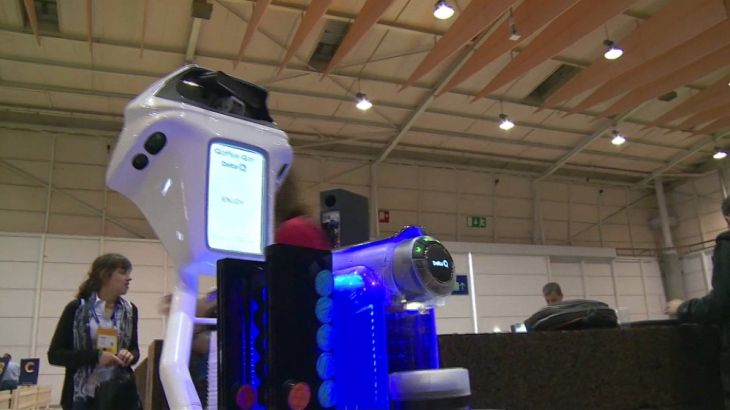Lisbon’s Web Summit: AI not without a dark side
As AI helps scientists improve tasks like speech recognition, others caution about its potential future threats.

Lisbon, Portugal – Artificial intelligence, or AI, has become a commonplace technology, helping researchers make improvements to computerised tasks such as speech recognition and robotics.
Machine learning, a branch of AI, allows the flood of data collected from devices to be organised, analysed and visualised in an intelligent fashion.
Keep reading
list of 4 itemsHong Kong’s first monkey virus case – what do we know about the B virus?
Why will low birthrate in Europe trigger ‘Staggering social change’?
The Max Planck Society must end its unconditional support for Israel
These powerful insights make products such as fitness trackers and climate sensors more appealing.
But as the technology evolves, experts are cautioning about the potential threats AI could pose in the future.
“AI could be used to deal with particular issues around privacy and surveillance and things like this,” Antoine Blondeau, chief executive of Sentient Technologies, told Al Jazeera at the Web Summit in Lisbon.
Watch Inside Story: How can we make the most of artificial intelligence?
“That would bother me a lot and it would bother others.
“So yes, it can be used for bad outcomes. It’s incumbent on us to make sure it’s not concentrated in the hands of people who can implement this without checks and balances.”
Stephen Hawking, Nobel Prize winner and world-renowned physicist, drew attention to the dark side of AI last month.
“Alongside the benefits, AI will also bring dangers like powerful autonomous weapons and new ways for the few to oppress the many,” Hawking said.
“It will bring great disruption to our economy and in the future AI could develop a will of its own.”
For the moment artificial intelligence poses no immediate or obvious threat, but experts say it is a matter of time and work needs to be done now.